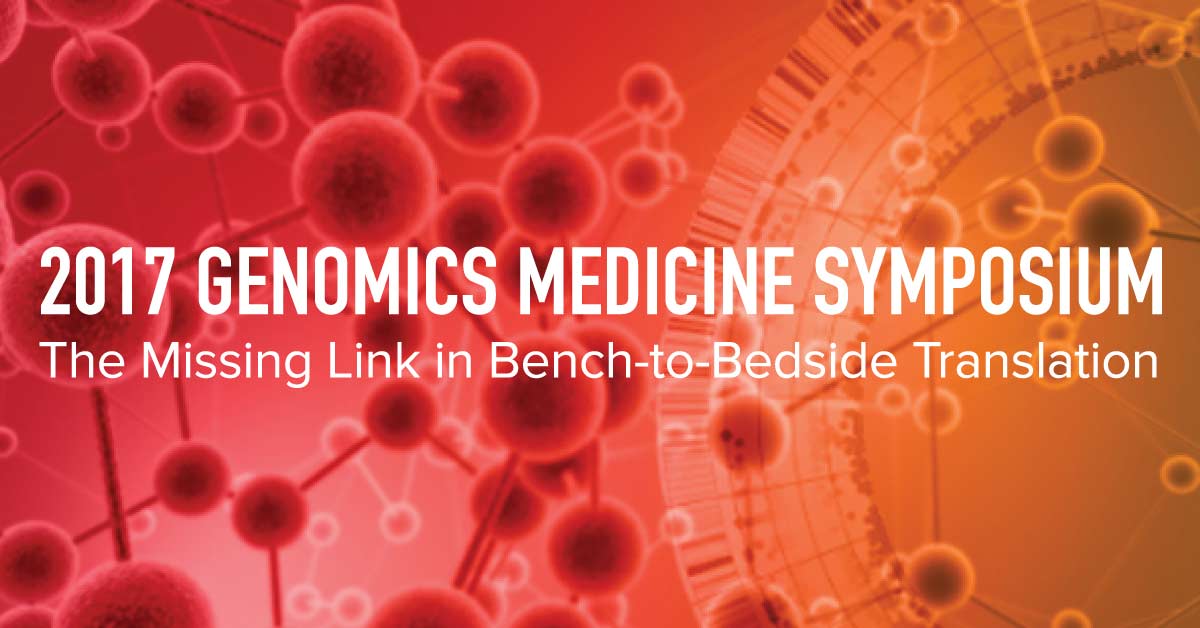More than one hundred leading genomics researchers and clinicians will connect March 23, 2017 at Sanford Burnham Prebys Medical Discovery Institute at Lake Nona (SBP) to share cutting-edge research techniques that are changing the way diseases are diagnosed and treated. The symposium titled “Genomics medicine: the missing link in bench-to-bedside translation” includes presentations on the latest advances in personalized cancer medicine—the use of genomic data to diagnose tumors, select the best therapies, and measure response to treatment.
“Imagine your clinician being able to diagnose prostate cancer from a urine sample or diagnosing the presence and status of cancer through a blood test. What scientists are studying today in Florida represents some of the hottest research themes that will drive advancements in human healthcare,” said symposium chair Ranjan Perera, PhD, scientific director of Analytical Genomics and Bioinformatics at SBP.
Presentation topics include:
· Gary Schroth, PhD, vice president of research and development at Illumina, will show how next-generation sequencing (NGS) technology is enabling entirely new ways to apply genomics information in the clinic and in research. Among other applications, NGS can be used to create gene expression fingerprints to select the right therapy for a given patient.
· Jonathan Licht, MD, director of the University of Florida Health Cancer Center, will describe his work developing new treatment strategies for blood cancers that correct abnormal gene regulation. These epigenetic therapies offer a powerful new way to “reset” which genes are active, returning leukemia cells to normal.
· Ranjan Perera, PhD, associate professor at Sanford Burnham Prebys Medical Discovery Institute at Lake Nona, will talk about his research creating noninvasive screening methods to detect prostate cancer at early stages. His lab is identifying sets of nucleic acid biomarkers that identify tumors and are detectable in urine.
· Lawrence Lesko, PhD, F.C.P., director of the Center for Pharmacometrics & Systems Pharmacology at the University of Florida, will explore how regulatory agencies like the Food and Drug Administration are influencing genomic medicine. Lesko is an expert in pharmacogenomics, the study of how genetic variation affects an individual’s response to drugs.
· Jane Gibson, MD, professor at the University of Central Florida, will explain how NGS is changing precision medicine, creating unprecedented challenges and opportunities. For example, NGS is a valuable tool for identifying biomarkers of cancer susceptibility, diagnosis, prognosis, and treatment.
· Shibu Yooseph, PhD, professor at the University of Central Florida, will present growing evidence that the human gut microbiome of cancer patients, especially those with colon cancer or leukemia, can be quite different from that of healthy individuals. Yooseph’s research focuses on the impact of potential microbiome differences on cancer progression.
All of this points to the momentum of using genomic information increasingly toward the development of personalized medicine strategies to treat cancer. In addition to the potential impact on saving lives, genomic medicine offers an economic impact by matching patients with targeted therapies sooner in the clinical care continuum.
